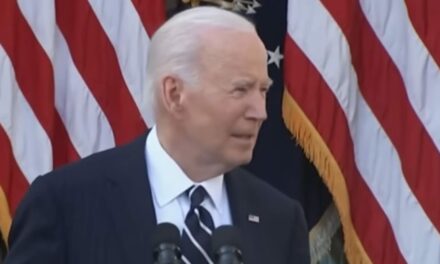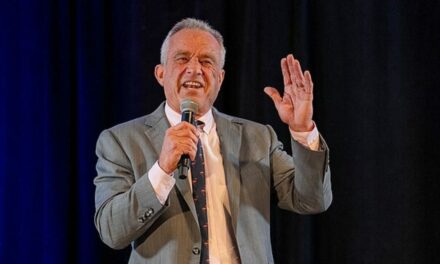We support our Publishers and Content Creators. You can view this story on their website by CLICKING HERE.
By Casey Harper (The Center Square)
Americans’ confidence in the economy dropped sharply in September, the biggest one-month change since the COVID-19 pandemic, according to newly released data.
The Conference Board’ Consumer Confidence Index, a marker of how confident Americans are in the economy, plummeted in September. The figure fell from 105.6 in August to 98.7 in September, the most significant drop since August of 2021.
RELATED: Indictment: Routh Charged With Attempted Assassination of Trump
“Consumer confidence dropped in September to near the bottom of the narrow range that has prevailed over the past two years,” Dana Peterson, chief economist at The Conference Board, said in a statement. “September’s decline was the largest since August 2021 and all five components of the Index deteriorated. Consumers’ assessments of current business conditions turned negative while views of the current labor market situation softened further.”
The federal government announced earlier this year that it significantly overestimated its previous data on how many jobs the U.S. economy created last year, meaning the labor market was far weaker last year than the federal data previously showed.
In fact, the U.S. economy created 818,000 fewer jobs than federal economists previously said, about a 30% reduction, the most significant jobs data revision in 15 years.
“Consumers were also more pessimistic about future labor market conditions and less positive about future business conditions and future income,” Peterson added.
Inflation has slowed since its breakneck pace earlier in the Biden administration, prompting the U.S. Federal Reserve to announce its first interest rate cut since 2020. However, prices remain elevated, having risen more than 20% since President Joe Biden took office.
“This morning’s Conference Board Consumer Confidence report was surprisingly downbeat, dragged down by a continued deterioration of consumers’ assessment of the present labor market situation,” Parker Ross, Global Chief Economist at Arch Capital Group, wrote on X, formerly known as Twitter.
“The metric from this report that I track most closely – the labor market differential (i.e. the net share reporting jobs plentiful less hard to get) – recorded its worst monthly decline in six months and extended a trend that suggests the unemployment rate will continue to rise,” he added.
RELATED: Noncitizen Voting Ballot Measures in Eight States This Fall
Wealthier Americans remained more confident, but poorer Americans were less confident.
Notably, other consumer sentiment data has painted a rosier picture recently.
“The drop in confidence was steepest for consumers aged 35 to 54. As a result, on a six-month moving average basis, the 35–54 age group has become the least confident while consumers under 35 remain the most confident,” Peterson said. “Confidence declined in September across most income groups, with consumers earning less than $50K experiencing the largest decrease. On a six-month moving average basis, consumers earning over $100K remained the most confident.”
Syndicated with permission from The Center Square.

 Conservative
Conservative  Search
Search Trending
Trending Current News
Current News 





